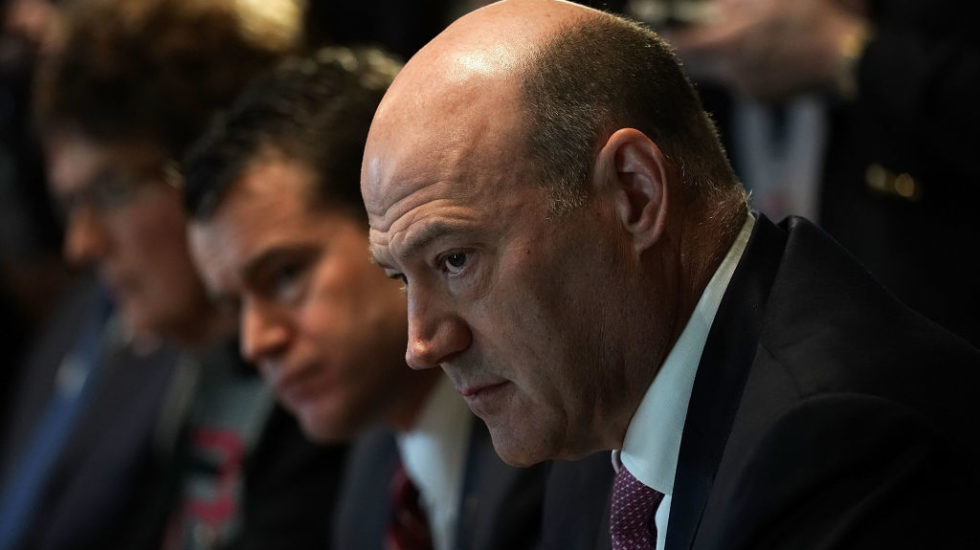Gary Cohn is not just another name, another departure from a White House that is already bleeding talent. Cohn, who resigned over his disagreement with Donald Trump over trade tariffs, was seen as a moderate and someone that could tell Trump ‘no.’ Not that he would listen, but the point is there are fewer and fewer staffers who aren’t in lockstep with the president. The stock market opened this morning with a Cohn is gone mini-slump.
The Dow Jones dropped 300 points at the market's open following news of Gary Cohn's White House exit. https://t.co/2D81Va2QrH
— Axios (@axios) March 7, 2018
From Axios:
This leaves the Trump White House understaffed and devoid of the moderating forces that helped shape his first 14 months in office. What remains is a more pliant, nationalistic staff, one much more aligned with Trump on trade, immigration, and other issues.
From NBC News:
Perhaps the most immediate consequence of yesterday’s resignation of top White House economic adviser Gary Cohn is that the White House is getting a lot more, well, Trump-y.
Cohn is Wall Street blue blood. He’s also a Democrat who has clashed with Trump not only on trade but after the president’s tepid response to the white-supremacists rally in Charlottesville last summer. But more than anything, Cohn was often seen as the smartest guy in the room, one who understood economic policy.
From Politico:
“The number of bad ideas that have come though this White house that were thankfully killed dead — there are too many to count,” a White House official told POLITICO. “With Gary gone, I just think, from a policy perspective, it means disaster.”
